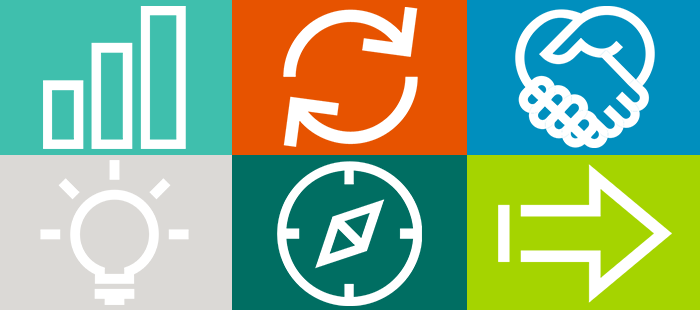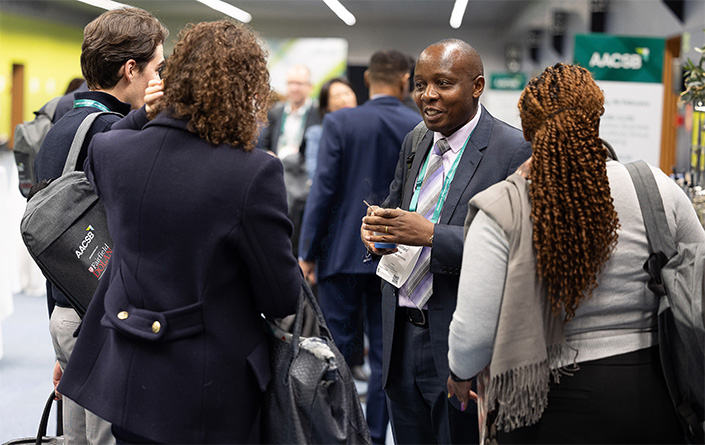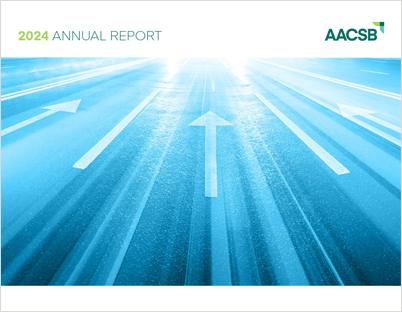Depolarizing the Workplace
- Spreading disinformation and misinformation in the workplace has become more prevalent in recent years, and these types of campaigns can create divisions within organizations.
- An intense focus on boosting individual performance and an inability to see multiple solutions to a problem have also led to polarization in today’s workplace.
- To help heal these rifts, organizational leaders should not only try to understand the source of division but also help employees find common ground and celebrate the advantages that differences can bring.
Transcript
Alan Jagolinzer: [0:15] Disinformation by definition means that there is some actor who was purposely trying to provide false information into a system with an intended purpose. There's an intentionality behind putting that information into a system. Misinformation often follows, where people are misled by it and they inadvertently share that kind of information.[0:37] What we're finding is that these actors are trying to get people agitated in many cases or trying to get them upset and angry. When they do that, some people are believing in it, and other people have critical skills and they don't believe it. That creates division.
[0:54] In many cases, it's purposeful division. They're trying to divide people in many disinformation campaigns. That can then harm the ability to kind of collaborate on any project.
We’ve made [employees] think they have to win the gold star, be the top of their class, be the top of their company, and this has forced them into focusing on individual success.
Jean Oelwang: [1:04] I think the world right now is so divided and fearful mainly because we have pushed people into hyper individualism. We've made them think they have to win the gold star, be the top of their class, be the top of their company, and this is forced them into focusing on individual success.
[1:20] Yet in life, the real meaning of life, and the real joy and happiness of life comes from the deep connections that we build in our lives. It's interesting because as we've been studying deep connections, we've also found that they've been at the center of most great human achievements, whether that's protecting the ozone layer, ending smallpox in India, ending apartheid in South Africa.
[1:39] I think business schools have an amazing opportunity to help students start to think rather than in a transactional lens in a relational lens through their lives and rethink what success means and building deep connection.
When we are polar, we listen only to respond, we don’t listen to understand and consider what possible solution would be, what the other person sees.
Austin Okere: [1:52] We tend to be polar in our positions. It's coffee or it's tea. It could be two additional answers there, and then it could be none or it could be both. Know polarity has to do with being comfortable, that we don't have all the answers.
[2:14] At the concept level, we may not have a clear view. At the competence level, we may begin to delve, to look where the evidence leads and look for how to get to common ground. Non-polarity, because when we are polar, we listen only to respond.
[2:36] We don't listen to understand and consider what possible solution will be in what the other person is saying. I'm sure that a lot of business people would do very well, if they learned that competence of non-polarity.
Jagolinzer: [2:52] Polarization is a core problem. I'm learning that it's actually having its effects within organizations. It can be amplified when a corporation or a company takes a political position on some of the hot topics that are out there in the environment today as well.
[3:09] One of the core things is that corporations and companies need to work with HR teams, and with organizational psychologists perhaps, to try and understand the culture and the potential divisions within their organization.
I feel like as human beings right now we have lost the art of being able to disagree without being disagreeable.
[3:23] Try to bring people together to have communications to understand that they actually do share more than they disagree upon. I also think that if we have a need-focused discussion, then more people will focus more on the actions needed and less on how much they divide across each other.
Oelwang: [3:40] I feel like as human beings right now we have lost the art of being able to disagree without being disagreeable. I feel like we need to figure out how we cross bridges, and really celebrate that electric current of difference that creates that spark of innovation.
[3:55] If you look at some of the partnerships that I interviewed, over 65 partnerships over the last 15 years, none of them were devoid of conflict. What they managed to do is put in place tools that allowed them to lift above the drama to actually have an extraordinary partnership.
[4:11] Some of those tools are things as simple as starting with really understanding why. Where is the other person truly coming from? Another one was always starting with the question, "What if the other person is right?" You're not starting in a defensive position.





